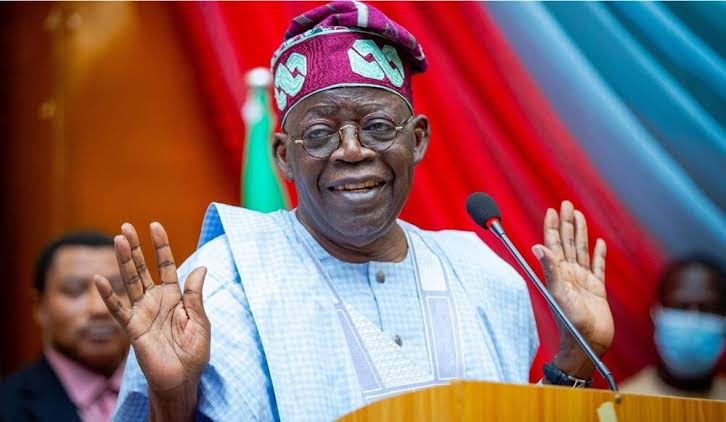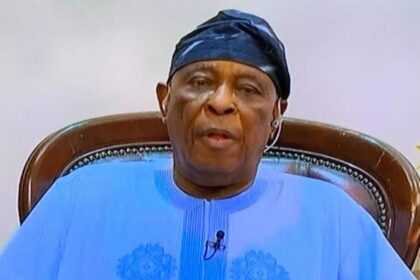– How his aides set up shop on presidential greetings
It is a curious thing to witness—the office of the President, that seat of ultimate authority and gravitas, the fulcrum of national leadership, reduced to the clattering of pleasantries and handshakes over cake and wine. What once stood as the symbolic embodiment of Nigeria’s collective power and hope now trails in the wake of society’s glitzy celebrations, not in substance or service, but in sycophantic adulations. The Nigerian Presidency, under President Bola Tinubu, seems to have developed a curious penchant for issuing greetings to an exclusive class of the country’s affluent elite.
In a period marked by widespread economic challenges and mounting insecurity, Nigerians are increasingly questioning how their presidency is being used—or misused. Under President Tinubu, a practice that has long simmered under the surface of Nigerian politics has now become a full-blown spectacle: the frequent issuance of presidential greetings to the country’s wealthiest individuals on the occasion of birthdays, naming ceremonies, wedding anniversaries, and even burials.
These messages, often issued with great fanfare from the Presidential Villa in Abuja, have become a common fixture in Nigeria’s elite circles. However, the volume and frequency of these congratulatory letters have raised concerns that the presidency is becoming more focused on the private celebrations of the wealthy than on the public concerns of ordinary Nigerians.
From a distance, these messages may seem harmless—routine, even. But the deeper issue is what these gestures represent: a trivialization of the presidency and a reduction of its gravitas. The President of Nigeria, the Commander-in-Chief of the Armed Forces, holds the most powerful and consequential office in the country. The job is not merely ceremonial; it is one that comes with the weight of responsibility for the future of 200 million people. When that office is increasingly associated with messages of joy directed at the wealthy, many argue it sends the wrong signal.
Critics point out that the presidency is not meant to serve as a tool for social validation. These frequent messages to wealthy Nigerians, many of whom have little or no direct relationship with President Tinubu, cheapen the institution of the presidency. What should be a platform for national leadership and policy direction risks being reduced to a public relations arm of Nigeria’s high society.
The roots of this practice can be traced back several administrations, but it has taken on a new life in recent years, becoming almost a status symbol in elite circles. For the wealthy and politically connected, receiving a personalized message from the president has become a new badge of honor—a mark of distinction to show that they are not just rich but also recognized by the country’s highest office.
Behind this growing trend is a well-oiled system. Sources close to the Presidential Villa reveal that some political operatives have made a business of marketing these congratulatory messages to Nigeria’s elite. For a fee, these brokers offer to secure a glowing message from the President for their clients, promising to add a touch of “presidential class” to their events. Whether it’s a birthday, a lavish wedding, or even the burial of a family patriarch, the President’s name can be attached to the celebration, regardless of whether there is any personal connection between the president and the celebrant.
This has led to a bizarre reality: President Tinubu’s name is often attached to events of individuals he does not know personally. The letters, issued in the name of the presidency, praise achievements, offer well wishes, and express joy at private milestones that have little bearing on national affairs. To those in elite circles, the letter is an ultimate symbol of status, a way to show peers and family that they are not only wealthy but also connected to the corridors of power.
However, for the average Nigerian, this practice is deeply troubling. At a time when the country is facing profound economic difficulties—rampant inflation, high unemployment, and a fluctuating naira—the sight of the president devoting time and resources to celebrating the personal milestones of the wealthy is a stark contrast to the urgent needs of the broader populace.
The optics are particularly jarring in a country where millions of citizens struggle daily with issues of survival. For many, it is hard to reconcile a president who routinely issues glowing tributes to the rich, while many of his citizens languish in poverty or face insecurity. While celebratory greetings may not seem like a major issue in isolation, when viewed within the broader context of Nigeria’s current challenges, they become part of a troubling pattern of governance that appears disconnected from the reality of the average citizen.
Beyond the economic implications, there is also a significant reputational cost to the presidency itself. The office of the president is supposed to be a symbol of national unity and leadership. In countries around the world, heads of state are expected to exercise restraint in engaging with private matters, particularly those that concern only the wealthy. The more time and energy a president spends congratulating a select group of citizens on their private affairs, the more the public is likely to perceive the presidency as being detached from the country’s pressing issues.
Moreover, there is the risk of diminishing the very institution of the presidency. Once regarded with reverence and respect, the office is now at risk of being seen as little more than a participant in society’s elite festivities. This is not dissimilar to what has happened to other formerly prestigious national institutions. Many Nigerians believe that the national merit awards, once reserved for individuals who made exceptional contributions to society, have been so degraded that they are now given out to those who are well-connected but not necessarily deserving.
If the practice of presidential greetings is allowed to continue unchecked, there is a real danger that it could go the way of the national merit awards, becoming a hollow gesture that is devoid of meaning and used merely to curry favor with the powerful. The credibility of the presidency itself could be compromised, as it increasingly becomes associated with the personal aggrandizement of the rich rather than the leadership of the nation.
It is critical that this practice is curtailed before it further erodes the stature of the presidency. The office of the President of Nigeria should be a bastion of integrity, not a vehicle for the social ambitions of the elite. The President’s voice and attention should be focused on addressing the urgent and complex challenges facing the nation, not on issuing ceremonial tributes to those who need them least.
President Bola Tinubu, and indeed future Nigerian presidents, must take steps to reorient the priorities of the presidency. Rather than engaging in congratulatory messages to the wealthy, the presidency should be centered on the national interest. There are pressing concerns in Nigeria that require the full attention of the President—reforms to the economy, tackling insecurity, and restoring public trust in the institutions of government.
If Nigeria is to move forward, the presidency must rise above these trivial matters and focus on its true purpose: leading the nation toward a more prosperous and equitable future. Anything less risks not just the dignity of the office but the very credibility of the institution that has, for decades, symbolized the hope and aspirations of the Nigerian people.




